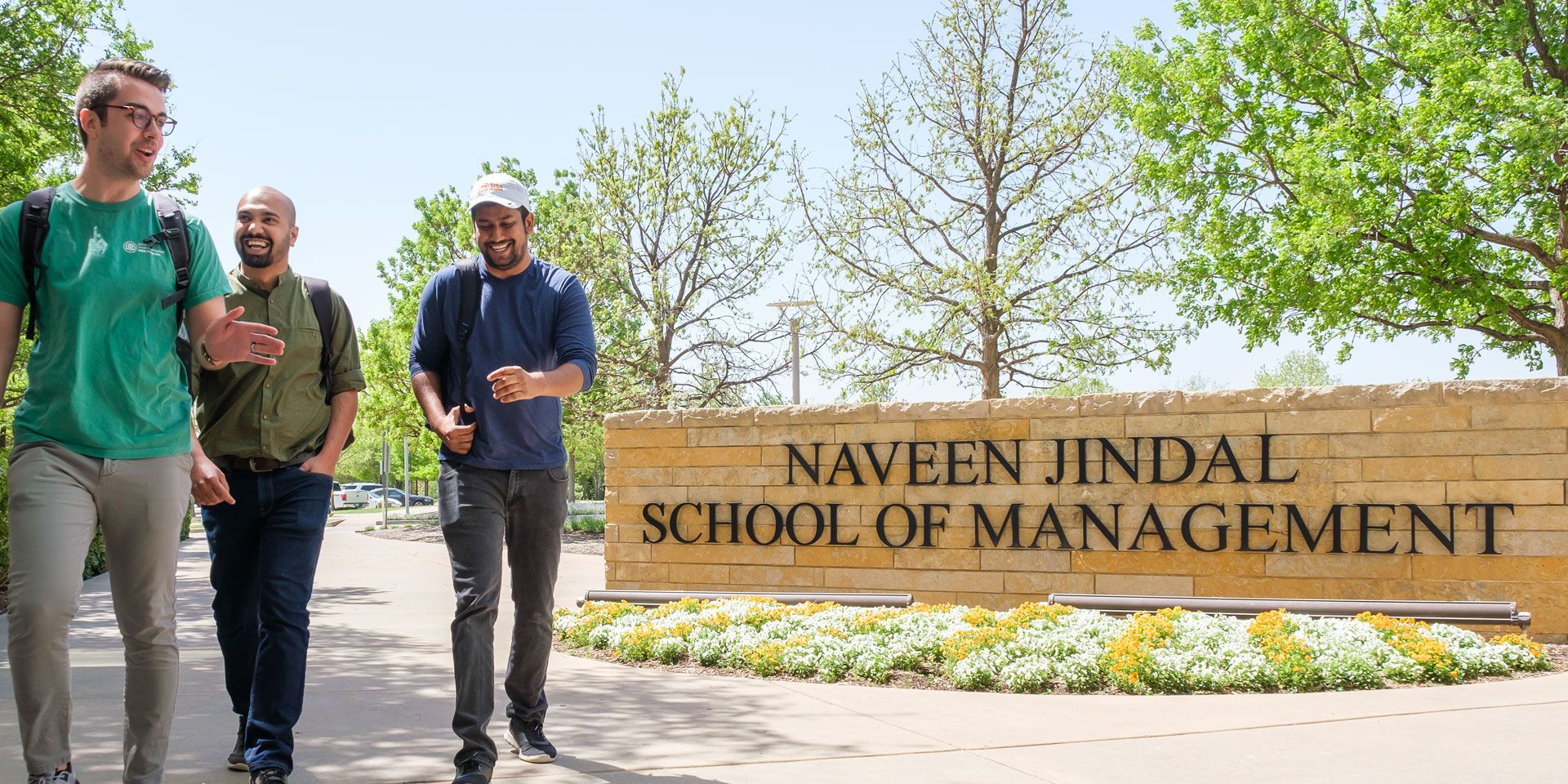How UT Dallas built a world-class business school
Under the leadership of a visionary dean, the Naveen Jindal School of Management is charging up the business school rankings and powering the rapid growth of The University of Texas at Dallas.

In the higher education universe, The University of Texas at Dallas is a rocketship.
Founded in 1961 as a small private graduate research center, UT Dallas has grown rapidly into an R1 university with nearly 31,000 students enrolled in its seven schools and nearly 150 degree programs.
The UT Dallas business school — the Naveen Jindal School of Management — has served as a primary engine propelling the university to great heights. With nearly a third of the university’s enrollment and an MBA program ranked 10th nationally among public universities by U.S. News & World Report, the Jindal School has emerged as a world-class business school — just as its dean envisioned when he arrived at UT Dallas in 1996.
In this interview, Dr. Hasan Pirkul, dean of the Jindal School and Caruth Chair, talks about giving the business school the spark it needed, the importance of both teaching and research, and the students he affectionately calls “my kids.”
How did you go about buiding a bigger and better business school?
When I came to UTD, the university had 9,000 students. The business school had 28 tenure- tenure-track faculty. We were literally a startup. The academic market is well established, and we had to compete in an environment which is very difficult to penetrate. You cannot just be good and incrementally improve. You have to do something extraordinary for people to notice. So we started the research rankings, based on publication in the 24 top journals in the past five years. The idea is to give faculty members, deans and potential Ph.D. students a tool to do benchmarking.
We were 58th the first year, which is actually great for a school of our youth and size. Nevertheless, 58th is not a shocker. Nobody would notice us if we stayed at 58th or slowly moved to 50th. We set a goal of being a top 15 business school in research. Sure enough, we made the top 15 six or seven years ago. Today, we’re number 2 behind Wharton at the University of Pennsylvania. The ranking system and our rank brought recognition to the school. That was basically the shock we were looking for.
NAVEEN JINDAL SCHOOL OF MANAGEMENT
Enrollment (fall 2023): 10,304 (54% undergraduate)
Academics: More than 30 graduate and undergraduate degree programs in six areas of business specialization.
Rankings: The Jindal School has garnered top 15 national rankings among public universities for its graduate and undergraduate programs from U.S. News & World Report, Financial Times, Fortune, Bloomberg Businessweek, Poets & Quants and others. Click here for the school’s rankings.
Dean: Hasan Pirkul, who holds a Ph.D. in Computers and Information Systems from the University of Rochester, has served as dean and Caruth Chair since 1996.
Learn more: jindal.utdallas.edu
Being recognized — is that what attracts students?
Yes, rankings and recognition help us get students. A lot of our students come from overseas, and with them it’s also a lot of word of mouth. But when I arrived at UTD, we just had MBA programs and undergraduate programs. The MBA program emphasized better communications and better human skills — which you need, no question — but not enough technology or math or analytical skills.
Business schools offered very few M.S. [master’s of science] degrees, and this is one of the innovations we did. We were not going to beat much older universities in the MBA game, but we thought if we started an M.S. in information technology, we could beat them. UTD is a quantitative technology-focused university, and my background is information technology and operations research. I was a believer that business schools lacked business analytics and that management of businesses was not scientific enough, so we started creating M.S. degrees. Now we lead the nation in these degrees. Our two largest M.S. programs, Business Analytics and Information Technology and Management, usually have around 1,500 students each. Analytics and IT weren’t necessarily in vogue for many years among business schools, but the market came to us.
Speaking of markets, UT Dallas is located in a huge one. The Dallas-Fort Worth Metroplex is home to 24 Fortune 500 companies. How does that help you?
We believe that part of our responsibility is that if a student comes to us, we have to do everything in our power to get them a job or an internship. Dallas-Fort Worth is a great place for these students to get great internships and good jobs. We couldn't do any of this if we were in a small town.

And how has your association with Naveen Jindal helped you?
Naveen Jindal is an MBA graduate of our school, and he’s the chairman of a diversified steel company in India. When he made his naming gift to the university, we were still very young, and it was important to get a name attached that said somebody thought enough about the business school to put up the funding to name it. It helped us do fundraising. Naveen’s signal and his moral support are very important.
What do you look for when you hire faculty?
Number one, you have to look for research potential. You have to look at their research, their advisor’s research, their connection in the marketplace. All of that matters. Number two, we want to ensure that their values match our values. When faculty come to this place, they have the moral obligation to take care of my students — I call them “my kids.” They have to teach my kids.
You’ve said that you try to give your students a small-school experience at a large university. How do you do that?
Business schools usually have a business administration degree with many majors, and there is one program director or associate dean in charge. When you have 4,000 students in a business administration degree program, it is very difficult to look after them. So I decided to chop up business administration into smaller degree programs where the number of students are in hundreds, not thousands. For each degree program I appointed a program director and a program coordinator and, if the program is large enough, a third staff person. By doing this I brought the student body into flocks, and each flock has a shepherd and an assistant shepherd. In this way we are able to pay more attention to the individual student. We think we give them an environment where they are happy. Happy students learn much better than unhappy students.

Dr. Hasan Pirkul, dean of the Jindal School and Caruth Chair, UT Dallas
Dr. Hasan Pirkul, dean of the Jindal School and Caruth Chair, UT Dallas
What’s your goal for your students?
We have built-in features in our degree programs to support students that reflect our culture and our values. A student cannot graduate from our school without participating in multiple business competitions. We are trying to hone their competition skills and make them competitive. We require our students to do 100 hours of community service. We require internships. We require a senior project — a real life, real corporation problems project. This school experience prepares our students when they come out to be productive employees and responsible adults.
Students have changed a lot since you became dean. How do you keep up?
I always tell my faculty and staff colleagues to base every decision on our moral principles. If our behavior is in compliance with our principles, it takes care of itself. Our principle is that we have to show compassion and empathy for our kids. Over time their needs change, their behavior changes. Our behavior doesn’t change. We always try to take care of them the best we can and meet their needs with compassion.
So the most important ingredient for a successful business school is …
It’s students and faculty. We as administration and staff, we basically get out of their way. We facilitate. We make them happy. We support them. And we provide a direction and goals that are worthy to work for.
This custom content is sponsored by The University of Texas at Dallas and developed by Inside Higher Ed's sponsored content team. The editorial staff of Inside Higher Ed had no role in its creation.


